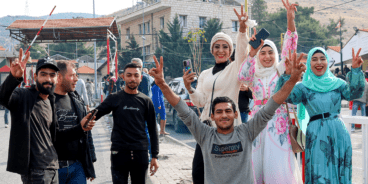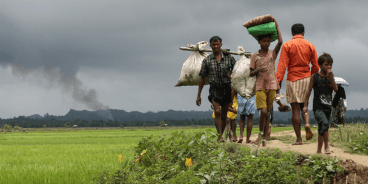

Joint NGO Statement: Justice for the Victims of Da’esh’s Atrocities
Two years ago Da’esh swept across northern Iraq and conducted a widespread and systematic campaign of mass atrocities against minority communities. Across the Nineveh Plain, Da’esh captured thousands of members of the Yazidi community and set about the summary killing of hundreds of Yazidi men. Women and girls were subjected to sexual slavery and human trafficking. Boys were separated from their families, forced to convert to Islam and sent to military training camps. Since then, the UN Independent International Commission of Inquiry for Syria has concluded that Da’esh’s crimes amount to genocide against the Yazidis and other minority communities.
Da’esh is still systematically carrying out a program of atrocities against religious minorities in areas under its control. An estimated 3,800 Yazidi women and children still remain captive, and recent reports suggest that up to 15,000 victims of Da’esh’s crimes may be buried in more than 70 suspected mass graves across territory previously occupied by Da’esh in Iraq and Syria. More than three million Iraqis still remain internally displaced in Iraq, and many others have become refugees.
Wherever Da’esh exports terrorism, it also exports war crimes and crimes against humanity, including to Libya and Nigeria. Da’esh’s victims in Iraq, Syria and elsewhere need to know that those committing atrocity crimes will be held criminally responsible. International justice is contagious, and accountability is one of the most effective tools for protecting human rights and preventing the recurrence of atrocities.
States have a responsibility to protect all communities from mass atrocity crimes within their borders, and the international community has an obligation to ensure that responsibility is upheld. We call upon the government of Iraq and the international community to investigate and prosecute Da’esh fighters who have perpetrated atrocity crimes and to hold to account all parties committing violations of international human rights and humanitarian law in Iraq and Syria. In doing so, we also recognize that fighting terrorism and countering violent extremism should never be used as an excuse for repudiating human rights, or ignoring international law.
Finally, the UN Security Council should assist in providing justice for the victims of Da’esh’s mass atrocity crimes by working with Iraq and other states to establish a relevant mechanism of international justice.
Signed:
Amnesty International
Global Centre for the Responsibility to Protect
Yazda
Related Publications


Statement on the developing situation in Syria
